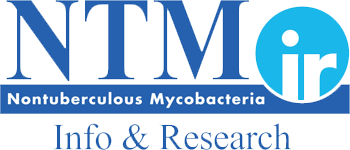NTM Info & Research Awards Grant to Oregon Health & Science University
Study Will Assess Efficacy of Hypertonic Saline in Treatment of Pulmonary NTM Disease
CORAL GABLES, FL, November 24, 2020 – NTM Info & Research (NTMir), the national nonprofit organization advocating on behalf of patients with nontuberculous mycobacterial (NTM) lung disease, announces they have awarded a research grant of up to $150,000 over two years to Oregon Health & Science University (OHSU).
The grant will fund a study to assess whether inhaled hypertonic saline helps improve symptoms and clearance of mycobacteria in patients with M. avium complex lung infections, and attempt to determine how much treatment burden it places on patients. Although hypertonic saline has been used for other lung conditions and has been prescribed for treatment of pulmonary NTM, it has not been studied in treatment of NTM/MAC. This study will examine the efficacy of inhaled hypertonic saline in culture conversion, improvement of clinical symptoms and safety.
Leading the study will be Kevin Winthrop, MD, MPH, a clinician, professor of medicine, and researcher at OHSU, and founder of the NTM Research Consortium. Dr. Winthrop and his team will also coordinate with a research group in the Netherlands conducting a similar study, to share study protocols and harmonize some of the data collection points.
“I am excited to have a prospective randomized controlled trial looking at hypertonic saline,” said Dr. Winthrop. “There is a paucity of data in the literature, and it’s never really been put to the test before. It is our hope that this pilot study will provide the needed data to conduct expanded research on how best to use hypertonic saline in the context of pulmonary NTM disease.”
“Dr. Winthrop’s work has resulted in a set of patient-centered research priorities, and his study aligns very nicely with several of the stated goals patients have expressed,” said Amy Leitman, President of NTMir.
“Airway clearance has become a key therapy in helping patients manage their lung disease, reduce sputum volumes, and improve overall breathing. We are eager to see the results of this study and how it can be applied to help improve patient outcomes,” she added.
